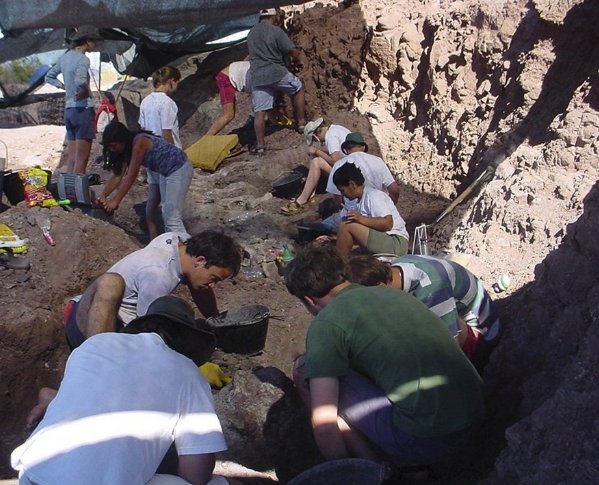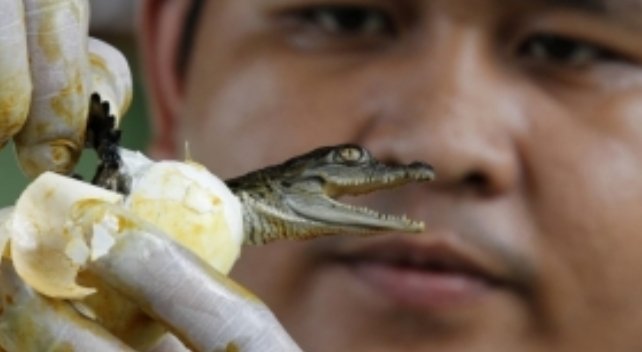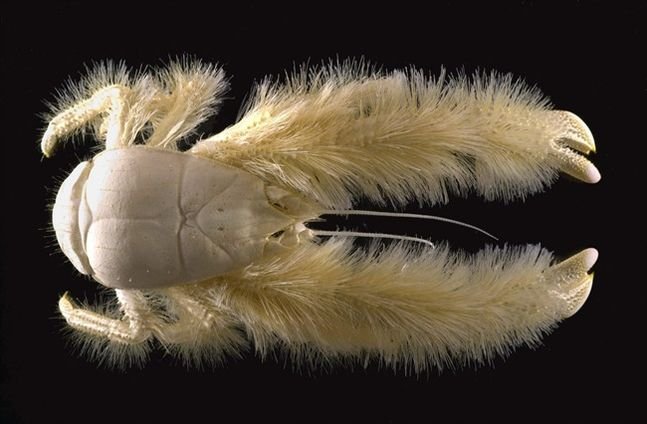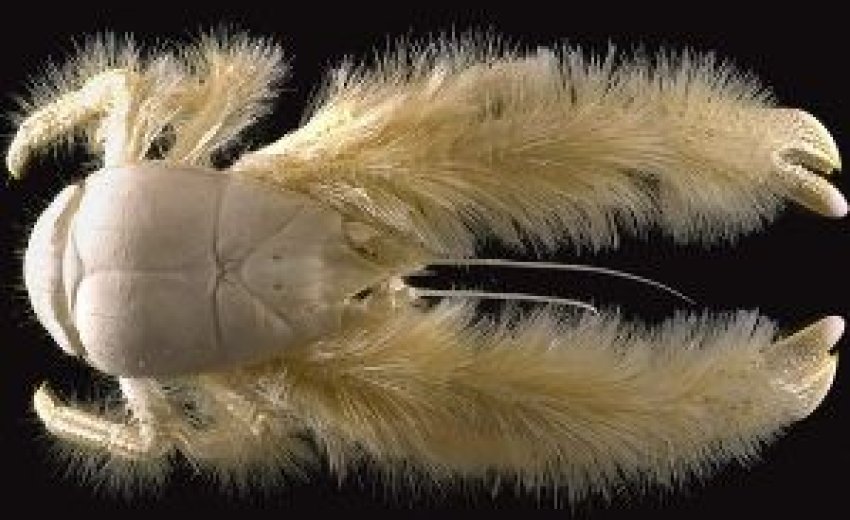
Number of Species on Earth is 8.7 Million, Scientists Say
By IBTimes Staff Reporter
http://www.ibtimes.com/articles/203142/20110824/number-of-species-on-earth-is-8-7-million-scientists-say-most-precise-number.htm

Scientists have made the most precise calculation yet of the number of species on Earth, determining the total to be 8.7 million. Currently only about 1.2 million species have been officially registered. It could take more than 1,200 years to discover the remaining species at the current rate of discovery, utilizing 300,00 taxonomists and costing about $364 billion.
Scientists have made the most precise calculation yet of the number of species on Earth, determining the total to be 8.7 million.
Previously estimated by mere educated guesses at a wide margin between three and 100 million, scientists calculated 8.7 million (plus or minus 1.3 million), a number they call "the most precise calculation ever offered" analyzing taxonomies and applying the patterns throughout genera and the rest of the classification hierarchy. The study was published on Tuesday in the journal PLoS Biology.
"The question of how many species exist has intrigued scientists for centuries and the answer, coupled with research by others into species' distribution and abundance, is particularly important now because a host of human activities and influences are accelerating the rate of extinctions," said lead author Camilo Mora of the University of Hawaii.
The majority of the 8.7 million are comprised of animals, estimated at about 7.7 million, leaving the last million to account for plants, fungi and protozoa, according to BBC.
The number of species on Earth prompts a basic question that has been enigmatic for scientists over the years.

8.7 Million Species on Earth, Give or Take 1.3 Million
"If we didn't know - even by an order of magnitude (1m? 10m? 100m?) - the number of people in a nation, how would we plan for the future?" co-author Boris Worm of Dalhousie University said to BBC.
Currently only about 1.2 million species have been officially registered, with about 700,000 informally registered and not present in central databases. Approximately 86 percent of land species and 91 percent of creatures in the ocean have yet to be discovered, Mora said.
However, it has proved difficult for scientists to reach this final, accurate number because obtaining a random sample of the world's biodiversity has been limited, as species vanish at astounding rates, and estimates have been considered controversial, according to the authors of the study.
"Many species may vanish before we even know of their existence, of their unique niche and function in ecosystems, and of their potential contribution to improved human well-being," Mora said.
According to TG Daily, it could take more than 1,200 years to discover the remaining species at the current rate of discovery, utilizing 300,00 taxonomists and costing about $364 billion.
Census Results for the Five Kingdoms of Eukaryotes. These numbers are approximate:
- Animals: 7.77 million species (of which 953,434 have been described and cataloged)
- Plants: 298,000 species (of which 215,644 have been described and cataloged)
- Fungi: 611,000 species (of which 43,271 have been described and cataloged)
- Protozoa: 36,400 species (single-cell organisms with animal-like behavior, such as movement, of which 8,118 have been described and cataloged)
- Chromists: 27,500 species (including, brown algae, diatoms, water molds, of which 13,033 have been described and cataloged)
____________________________________________
Total number of different species on Earth estimated at 8.7 million: new study
By: Michael MacDonald, The Canadian Press
http://www.winnipegfreepress.com/arts-and-life/life/greenpage/total-number-of-different-species-on-earth-estimated-at-87-million-new-study-128273528.html

HALIFAX - It's a simple question that has vexed humans for centuries: What lives on Earth?
In the past 250 years, the formal list of named species has grown to include about 1.2 million animals, plants, fungi and other simpler organisms.
But the actual total is much higher, given that new species are still being discovered at a rapid rate, with an average of 6,200 new species catalogued annually in the past 20 years alone.
Trouble is, the latest scientific estimates are less than useful, varying from three million to more than 100 million species.
Researchers at Dalhousie University in Halifax say they have devised an innovative analytical technique to dramatically narrow that range, producing what they describe as the most precise calculation ever offered.
In a study published Tuesday in the scientific journal PLoS Biology, the scientists say the potential number of species worldwide is about 8.7 million.
If they're right, that means 86 per cent of all species have yet to be discovered.
"We're really pretty ignorant about our own planet," says co-author Boris Worm, an assistant professor of biology known for his work on the Census of Marine Life. "At the same time, we're wrecking it at a breathtaking pace."
Worm says having an accurate estimate of the total number of species is important because it provides the most basic number needed to describe our biosphere.
"Humanity has committed itself to saving species from extinction, but until now we have had little idea of even how many there are," he says. "It's like saying ... we don't want anyone to be murdered, but we don't even know how many citizens there are."
The peer-reviewed study, published by the Public Library of Science, says there are practical benefits to expanding scientific knowledge beyond the 14 per cent of species we already know about.
In the 1970s, for example, a new strain of rice based on a cross between conventional species and one discovered in the wild led to a 30 per cent increase in grain yield, followed by efforts to protect all wild varieties of rice.
The study's lead author, Camilo Mora of the University of Hawaii and Dalhousie University, says prospecting for new species should be a scientific priority.
"Many species may vanish before we even know of their existence, of their unique niche and function in ecosystems, and of their potential contribution to improved human well-being."
In the past, researchers focused on finding the most conspicuous plants and animals, which is why the formal lists for mammals, birds and fish are thought to be almost complete.
"In Darwin's time, it was a gentleman's sport to travel to exotic locations and bring back all kinds of interesting creatures and describe them formally," Worm says.
Today, the process is not so easy, particularly when it comes to finding tiny plants and animals living on the ocean floor or buried in moist tropical soil.
As a result, there are huge gaps in knowledge, particularly when it comes to the millions of different insect species.
"There's a lot of them, and some of them are very small and hard to get at," Worm says.
The same is true of undersea creatures. The study's authors say that only 11 per cent of the estimated 2.2 million marine species have been described and catalogued.
In October 2010, the 2,700 researchers with the Census of Marine Life project concluded a 10-year investigation that led to the discovery of 1,200 new underwater species. Another 5,000 had yet to be identified.
However, not all of the most recent finds have been limited to tiny, obscure creatures.
Last fall, scientists confirmed hunters in the jungles of Myanmar had captured and killed a new species of snub-nosed monkey that sneezes when it rains. The endangered animal was eaten by local villagers.
"The age of discovery, typically associated with the 19th century, is still in full swing," says Worm.
"We keep looking for them and we keep finding oodles and oodles of new (species) ... We're stumbling over new things all the time, even in our own backyards."
__________________________________
For further reading follow links below:
GLOBAL: Nine million species on Earth? by University World News
How Many Species on Earth? It’s Tricky by CARL ZIMMER
Recently Discovered ~ a slideshow
Courtesy:
Surinder Singh
[email protected]
Baru Sahib Baba Ji visit to Dallas:
http://barusahib.weebly.com
www.barusahib.org/dallas
